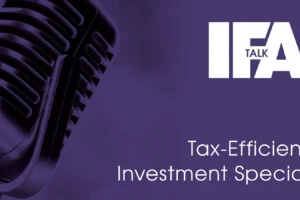Rosie Hooper, chartered financial planner at Quilter: “It seems that the cost-of-living crisis has been the straw that has broken the camel’s back for the housing market. New statistics from The Bank of England released today has revealed that net borrowing of mortgage debt by individuals has decreased to £4.1 billion in April, down from £6.4 billion in March. This means that the market is now below the pre-pandemic average of £4.3 billion in the 12 months up to February 2020.
Similarly, approvals for house purchases, which is an indicator of future borrowing, decreased to 66,000 in April, from 69,500 in March and is again below the 12-month pre-pandemic average up to February 2020 of 66,700. The housing market has been running incredibly hot for a very long time, managing to overcome the fiscal pressures of a pandemic but it looks now set to cool, as demand reduces.
While the heat has finally come out of the property market, borrowers are now back to spending on their credit cards and it is the third consecutive month where borrowing has been higher than the 12-month pre-pandemic average with individuals borrowing an additional £1.4 billion in consumer credit in April, on net.
However, with inflation running riot at the moment and interest rates on the rise to try to placate it, increased borrowing could be cause for concern. Credit cards have some of the highest interest rates and if the borrowing is to pay for the current higher cost of living or paying for essential bills then people could very quickly spiral into unmanageable debt.
People do however seem to be recognising the unique fiscal challenge we face and are preparing for a winter of discontent by ploughing money into their savings. The combined net flow into both deposits and NS&I accounts in April was £6.3 billion, compared to an average monthly net flow of £5.5 billion during the 12-month pre-pandemic period up to February 2020. These additional savings added to the considerable savings some amassed during the various lockdowns could go some way to softening the financial blow of rising food and energy prices.”
Richard Pike, sales and marketing director at Phoebus Software: “Looking at the figures from the Bank of England today it appears that the mortgage market is entering a period of flux. Inflation is already weighing heavy and, for many people, ensuring that bills are paid is of the greatest importance. This of course does mean that some people, that may have been thinking of moving, have put the brakes on for now.
The fact that borrowing on credit cards is at its highest level since February 2020 perhaps shows that some people may already be turning to alternative credit. Although there is always the opportunity to remortgage, those on shorter-term fixed rates, with deals coming to an end, are more than likely going to find that any new deal will be at a higher rate than they have been used to. So the questions are, when should you fix and for how long?”















